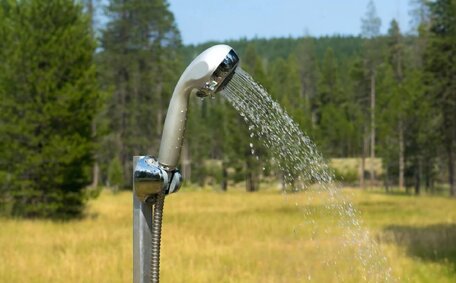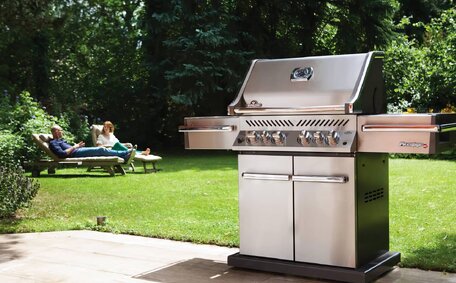Introduction to Pipe Relining: A Modern Solution
Pipe relining is an innovative plumbing technique that provides a structural solution for various plumbing problems without the need for invasive excavation. It has become an extremely popular service for managing problems like calcium and mineral buildup in both residential and commercial properties.
Discover how pipe relining effectively manages calcium deposits and scale from hard water, offering benefits like preventing blockages and enhancing water flow without the exorbitant cost of pipe replacement.
Specialising in the latest no-dig repair methods, we will demonstrate how pipe relining can refurbish your pipes, counteract mineral deposits, and modernise aging plumbing with minimal disruption.
The Perils of Calcium Buildup in Pipes
Specialised pipe relining technology is essential to remove calcium deposits that hard water in your area can deposit, averting significant issues in plumbing systems over time. Given Peakhurst’s notably hard water, calcium accumulation can compromise your plumbing system, potentially necessitating pipe replacements.
Hard water deposits may initially present as chalky residue but can escalate to blockages within your pipes, restricting water flow and reducing water pressure, thus requiring timely intervention.
Besides impeding storm water flow, calcium deposits also corrode and damage pipes from the inside.
In extreme situations, hard water in your plumbing fully obstructs water flow, causing fixtures to sputter and spray. Eventually, blocked drains can lead to the failure of your plumbing system, potentially resulting in costly repairs or complete pipe replacement.
Reduced water pressure or white/yellow residues around taps are signs that mineral deposits are affecting your plumbing. Pipe relining provides a durable solution for calcium buildup and subsequent damage.
How Calcium Buildup Occurs
Calcium build up in pipes occurs due to the natural minerals dissolved in water, especially in areas with hard water like Peakhurst. Water acquires minerals like calcium and magnesium from the ground, which accumulate in pipes over time.
As water is heated, these dissolved minerals fall out of solution, leading to buildup along the inside walls of pipes and fittings. Over time, these deposits can lead to broken, blocked pipes as they build upon each other forming scale or residue. Calcium carbonate deposits harden and accumulate, leading to restrictions inside the pipes.
Besides in the hot water system, calcium buildup in pipes commonly occurs around sink taps and other fixtures where water is heated or evaporates. Regularly taking action to remove calcium buildup can keep drains free from blockages, maintain optimal function, and prevent accumulation that hinders water flow and pressure, thus averting leaks or significant damage over time.
Issues Caused By Calcium Buildup
Calcium accumulation from minerals can lead to a series of problems your plumbing might face, all demanding attention. The accumulating mineral deposits can severely impede the flow of tap water over time, resulting in reduced water pressure and volume in your dwelling.
As the scale expands inside pipes, it causes corrosion and rust when it reacts with the metal surfaces. Older pipes made of iron and steel are especially vulnerable to corrosion damage. The internal walls of a damaged pipe get eaten away, eventually leading to leaks, cracks or bursting.
Besides pipe deterioration, calcium buildup also physically clogs fixtures. Showerheads become your blocked resources, resulting in weak trickles.
Jammed toilet valves result in constant running and flushing issues, alongside kitchen taps that sputter due to obstructed flow.
Within the drain pipes, hefty calcium deposits, tree roots, and domestic waste merge, crafting obstructions that are clear signs blocked pathways are present. Bathroom sink drains commence draining slowly, landing into a blocked state, often due to mixed debris like a tree root from sewer pipes. Sediment accumulation along the sewer stormwater line can also develop into significant blockages, turning them into a blocked sewer drain at principal junctions.
By relining the pipe within an old sewer line, even a blocked drain can be effectively addressed. The professionally applied epoxy barrier is tailored to pipe diameters, enhancing water flow, pressure, and volume by modernising the internal plumbing system.
How Pipe Relining Addresses Calcium Buildup
Pipe relining provides an effective management solution for calcium buildup in ageing systems and also educates homeowners on maintaining their plumbing. It works by installing a durable epoxy lining inside the existing plumbing, without the need for any digging or demolition.
The seamless pipe lining effort crafts a smooth barrier, effectively making its way along the interior pipe walls. This protective layer prevents future scale deposits from adhering and accumulating inside the pipes.
By ceasing further calcium deposition, relining illustrates exactly how remove calcium as the root cause behind declining water flow and pressure loss. It re-establishes optimal water volume by smoothing out pipe interiors cracked and encrusted from years of mineral buildup.
Custom-fit epoxy linings also shield pipes from further corrosion and damage by mineral deposits, thereby extending the functional lifespan of plumbing systems.
So instead of continually dealing with the headaches of mineral deposits - from poor water flow to leaks and pipe damage - consider our blueline method of pipe relining. Contact Peakhurst Plumbing to learn more about this innovative solution for reinforcing your pipes against calcium buildup.
The Pipe Relining Process
Pipe relining is a skilled task where technicians expertly insert a resin-saturated liner into the existing pipe. Here is an overview of the key steps:
- We begin addressing calcium buildup by using CCTV drain cameras for an exhaustive inspection, enabling precise diagnosis and tailored solutions for your pipe issues.
- Next, a flexible epoxy liner soaked in special resin is inserted into pipe through an access point like a manhole. The liner is then secured to pipe fittings and extended the necessary length.
- Once positioned, high-tech equipment is used to expand the liner against the pipe walls, with hot water or steam curing the resin into a smooth, seamless barrier.
- After a few hours of curing, the new epoxy lining is structurally sound. The pipes now have a jointless barrier coating that prevents leaks, corrosion and future scale buildup.
- Finally, lateral junctions, which can also cause issues if left unchecked, are reinstated and the lining trimmed. Your pipes without extensive damage are now renewed through this non-invasive process. Water flow and pressure are rejuvenated, as water smoothly makes its journey through the drainage system.
Within days, the comprehensive pipe relining work enhances your piping with a protective epoxy layer. Contact Peakhurst Plumbing to learn more about reinforcing your plumbing against calcium deposits through trenchless relining.
How Pipe Relining Removes Calcium Deposits
Pipe relining is highly effective at clearing out existing calcium deposits while preventing future buildup. Before installing the epoxy barrier, technicians first wash out old mineral deposits from the pipes using high pressure water jets.
For those facing chronic blocked drains, powerful hydro jetting propels water at high pressure, up to 5000 PSI, through the pipes. This water blasting can make quick work of breaking down and dislodging years of accumulated scale. The high-pressure streams expel dislodged calcium deposits, thoroughly cleaning the pipe interiors.
With the pipes cleared of old buildup, we utilise the flexible epoxy liner and then insert it. Once cured, this forms a ultra-smooth barrier that water simply cannot adhere to. By sealing cracks and gaps, relining leaves no surface for new mineral deposits to adhere to.
So pipe relining tackles calcium buildup in two ways, leaving customers very happy with the results:
- Clearing out existing scale and residue using water jetting
- Installing a seamless epoxy lining that prevents future deposits from accumulating into your pipes
Contact Peakhurst Plumbing to learn more about renewing your pipes through non-invasive relining. Mention this article for special discounts on pipe assessments and calcium removal relining packages.
Benefits of Pipe Relining for Calcium Issues
Pipe relining provides a range of advantages over traditional pipe replacement when managing problematic calcium buildup due to hard water your pipes face:
- Cost-Effective: Getting the job done by relining pipes is significantly cheaper than having to need dig up and get rid of old piping. There is no need to dig trenches or damage landscaping.
- Non-Invasive: The no-dig process allows calcium removal and pipe strengthening without disrupting homes or businesses. Downtime and damage to your house are minimised.
- Long-Term Solution: The smooth epoxy barrier prevents future calcium adhesion. It permanently shields pipes from additional corrosion and damage due to mineral deposits.
- Prevents Clogs: Relining helps prevent drain blockages by clearing old deposits and creating an ultra-smooth surface that deters new calcium buildup.
- Enhances Flow: Relining removes obstructions and roughness, restoring water pressure and flow impacted by calcium scale.
We would highly recommend pipe relining as an effective means for calcium extraction without significant disruption. Contact Peakhurst Plumbing to ensure your drain systems are strengthened against mineral deposits throughout your home. Mention this article for special relining inspection offers.
Preventing Future Calcium Buildup
To sidestep impending complications with calcium buildup in your plumbing, it’s wise to undertake preventative steps, such as to install a water softener in your system:
- You can install a water softener system to remove minerals before they enter your pipes.
- Regularly flushing pipes can remove obstructions, enabling a strong flow of water to clear the drainage system.
- Use a drain snake with professional drain cleaning services, or a DIY mixture of vinegar baking soda annually to rinse any new buildup.
- Have a yearly drain inspection to detect potential new calcium deposits early.
- Clean fixtures regularly using natural solutions like baking soda vinegar or lemon juice, or opt for commercial descaling products.
- Set hot water heaters to a moderate 120°F to slow mineral precipitation.
- Choose pipes like PEX that are more resistant to scale accumulation when replacing lines.
We would highly recommend you install a water softener for a proactive maintenance approach to help avoid pipes getting clogged by calcium deposits again. Contact Peakhurst Plumbing for comprehensive plumbing services including preventive pipe care plans, hydro jetting, or water softener installation.
Tips to Reduce Calcium in Pipes
Several practical steps can help homeowners prevent problematic calcium buildup:
- Regularly flush pipes with hot water to dissolve and prevent scale from hardening.
- Occasionally use boiling water to dissolve minor deposits, or consider installing a water softening system to filter out minerals like calcium and magnesium.
- Employ a mixture of vinegar and baking soda as a natural descaling solution, allowing it to break down existing deposits monthly.
- Replace old galvanised steel pipes with PEX or copper options that better resist corrosion and mineral buildup.
- Insulate your water pipes and turn down heaters to 120°F to reduce calcium precipitating from hot water.
- Regularly and thoroughly clean fixtures using natural citric acid solutions to remove limescale.
- Consider hydro jetting pipes annually as preventive maintenance to clear any developing calcium deposits.
Taking proactive measures allows homeowners to care for your drains, avoiding major blockages from calcium scale over time. Contact Peakhurst Plumbing to learn about water softener systems or schedules for preventive drain maintenance.
Regular Maintenance to Prevent Buildup
To keep plumbing systems running efficiently and avoid issues like calcium buildup, regular maintenance is crucial. We advise Peakhurst homeowners to schedule annual plumbing check-ups, including inspections of electrical systems, for early detection and prevention of scale accumulation.
An annual inspection can spot potential buildup, enabling early intervention with targeted flushing or hydro jetting.
We also recommend installing salt-based water softeners to prevent hard minerals like calcium and magnesium from entering your water supply.
Services like descaling fixtures or insulating hot water lines reduces chances of calcium precipitation over time.
Taking a proactive stance ensures the maintenance and prevention of buildup in your plumbing stays in peak shape. Avoid emergency pipe repairs - contact Peakhurst Plumbing at 1300 349 338 about maintenance plans or schedule an inspection online via [email protected]





